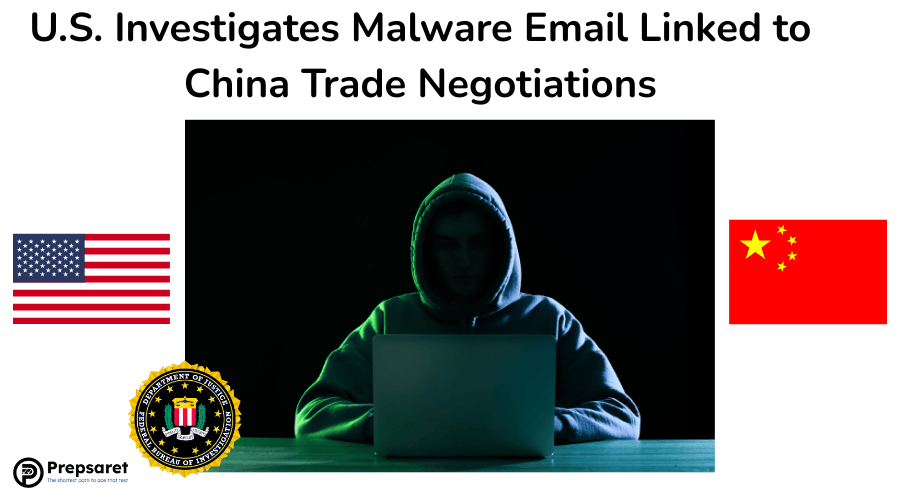U.S. officials are examining a fraudulent email crafted to look as though it was sent by Republican Representative John Moolenaar, which carried malicious software allegedly designed to provide China with inside knowledge of the Trump administration’s trade strategy, according to a Wall Street Journal report released Sunday.
The suspicious message, which surfaced in July, was sent to law firms, government agencies, and trade organizations.
Cybersecurity experts traced the malware back to APT41, a hacker collective widely believed to operate on behalf of Chinese intelligence services, the Journal noted.
Moolenaar, known for his outspoken stance against Beijing, currently heads a congressional committee overseeing issues tied to U.S.–China strategic rivalry and national security.
Related story: Cybersecurity News
A Broader Pattern of Espionage
The incident marks the latest in a series of cyber operations attributed to Beijing, allegedly intended to give China access to internal U.S. policy discussions and recommendations on ongoing trade disputes.
People familiar with the case told the Journal that the attack came just ahead of U.S.–China negotiations in Sweden, which resulted in extending a tariff truce until early November.
That period coincided with preparations for a potential meeting between President Donald Trump and Chinese leader Xi Jinping at a regional economic summit.
Recipients of the bogus email were asked to review what appeared to be draft legislation, accompanied by the line, “Your insights are essential.”
According to investigators, opening the attachment would have granted hackers extensive access to the recipients’ systems. It remains unclear, however, whether the operation successfully infiltrated any networks.
The Chinese embassy in Washington denied knowledge of the attack, stressing that attribution in such cases is difficult. “China firmly opposes and combats all forms of cyber attacks and cyber crime,” the embassy said in a written statement.
“We also firmly oppose smearing others without solid evidence.”
The U.S. Capitol Police are currently probing the incident, though they declined to provide comment to the Journal. The FBI acknowledged awareness of the matter, stating, “While we are not commenting on any specific information, the FBI is aware of the situation, and we are working with our partners to identify and pursue those responsible.”
Moolenaar himself described the email scheme as part of a broader pattern of Chinese cyber efforts targeting U.S. policy. “We will not be intimidated,” he said in remarks to the Journal.
The attack reportedly came to light when members of Moolenaar’s committee began receiving unexpected inquiries referencing the fake email.
Read Next: Trump Proposes Tariffs on Semiconductor Imports to Boost U.S. Manufacturing
Want to take your career to the next level and maintain a competitive edge in your field?
Check out our handpicked set of certification study resources, created to help you strengthen your expertise, use resources more efficiently, and stand out from the crowd:
- CompTIA Exam Prep – Develop your knowledge in IT support, networking, and cybersecurity.
- HR Certification Resources – Deepen your skills in compliance, workforce planning, and talent management.
- PMP Study Materials – Advance your project management abilities in areas like budgeting, scheduling, and team leadership.
- Praxis Test Prep – Get ready for your teaching certification with thorough guides, practice tests, and state-specific materials.

